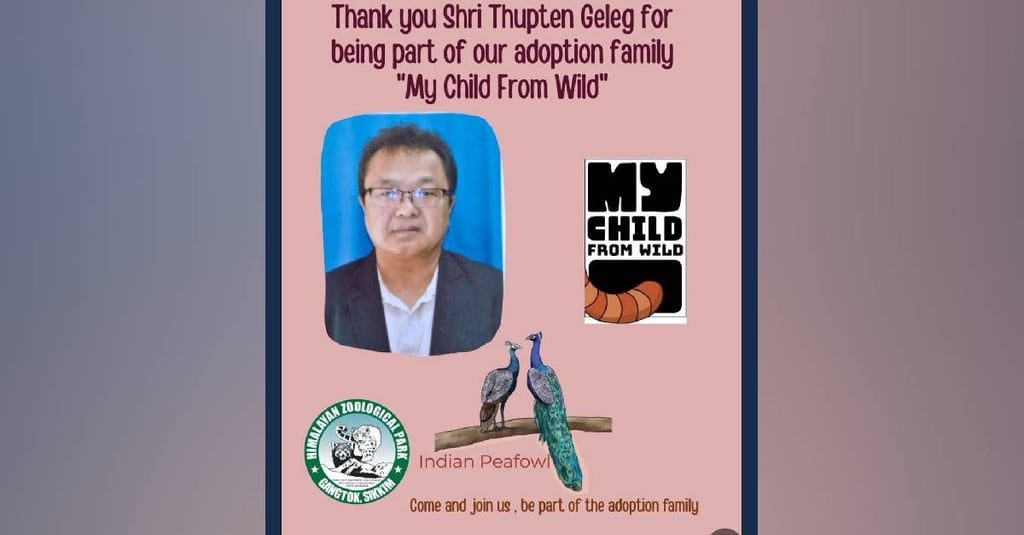Gangtok officer adopts peacock at Himalayan Zoo, promotes wildlife harmony
The “My Child From Wild” program allows individuals to symbolically adopt animals at the park by contributing to their care and upkeep.
LOCAL


Thupten Geleg, Joint Director of the Directorate of Economics, Statistics, Monitoring and Evaluation (DESM&E), has stepped forward to adopt a peacock—India’s national bird—under the “My Child From Wild” initiative at the Himalayan Zoological Park, Gangtok.
Hailing from Tibet Road in the capital city of Sikkim, Geleg has been widely admired for his dedication and commitment to public service. His decision to adopt the peacock at a contribution of ₹2,500 is being seen not just as a symbolic act, but a powerful message about the importance of coexistence between humans and wildlife.
The peacock, known for its majestic and colourful feathers, is a member of the largest pheasant species found in India. Though currently classified under the ‘Least Concern’ category by conservation standards, the species continues to face serious threats due to increasing human-wildlife conflicts. In rural and farming communities, these birds are often targeted for damaging crops, leading to unfortunate consequences for a species so deeply rooted in Indian culture and mythology.
Speaking on this occasion, officials at the Himalayan Zoological Park expressed their appreciation for Mr. Geleg’s support. “We warmly welcome Shri Thupten Geleg into the HZP Adoption Family. Such acts of support bring visibility to conservation issues and inspire others to contribute,” said a park spokesperson.
The “My Child From Wild” program allows individuals to symbolically adopt animals at the park by contributing to their care and upkeep. It not only strengthens the park's conservation efforts but also builds emotional connections between citizens and wildlife. Mr. Geleg’s adoption of the peacock, known for its beauty, grace, and national pride, is expected to raise awareness among the local community, especially among the youth and government staff.
In the context of Gangtok’s growing urban population and changing land use patterns, such adoptions are becoming crucial. They help raise funds and awareness, both of which are needed to maintain the delicate ecological balance of the Himalayan region. Several residents and visitors at the zoo shared their admiration for the initiative, calling it “a small step with a large impact.”
